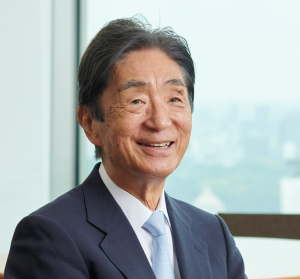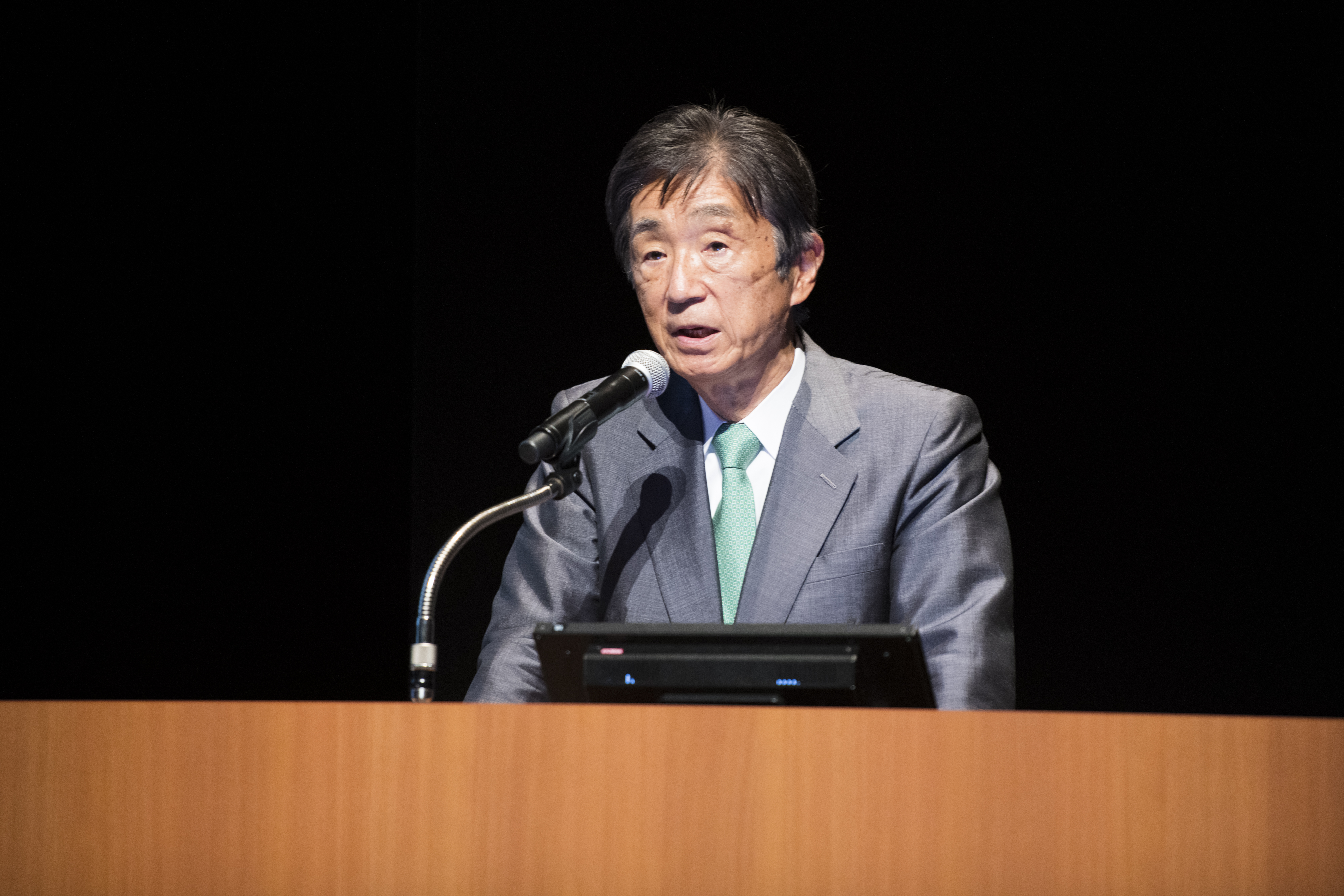
- Event
A New Vision for the Tokyo Foundation for Policy Research: Toward an Era of Policy Innovation
October 21, 2022
In remarks delivered at a July 22 symposium hosted by the Tokyo Foundation for Policy Research, Chief Executive Officer Yuichiro Anzai outlines new directions for research, communication, and human resources development, with an eye to the unprecedented changes and challenges facing Japan now and in the years ahead.
* * *
In this age of upheaval, Japan boasts a wealth of think tanks offering insights in such fields as politics, foreign policy, economics, and fiscal management. What can the Tokyo Foundation for Policy Research contribute to the mix? I would like to address this question by offering my vision for the Foundation.
Background
Our beginnings can be traced to the establishment of the Global Foundation for Research and Scholarship in July 1997. Two years later, the name was changed to the Tokyo Foundation, and in February 2018 it was changed again, to the Tokyo Foundation for Policy Research. Izumi Kadono assumed the post of president in June 2018, and I was appointed chief executive officer in December 2020. Since then, and especially during the past year and a half, we have been immersed in preparations for a new era, including a total reorganization of our research activities.
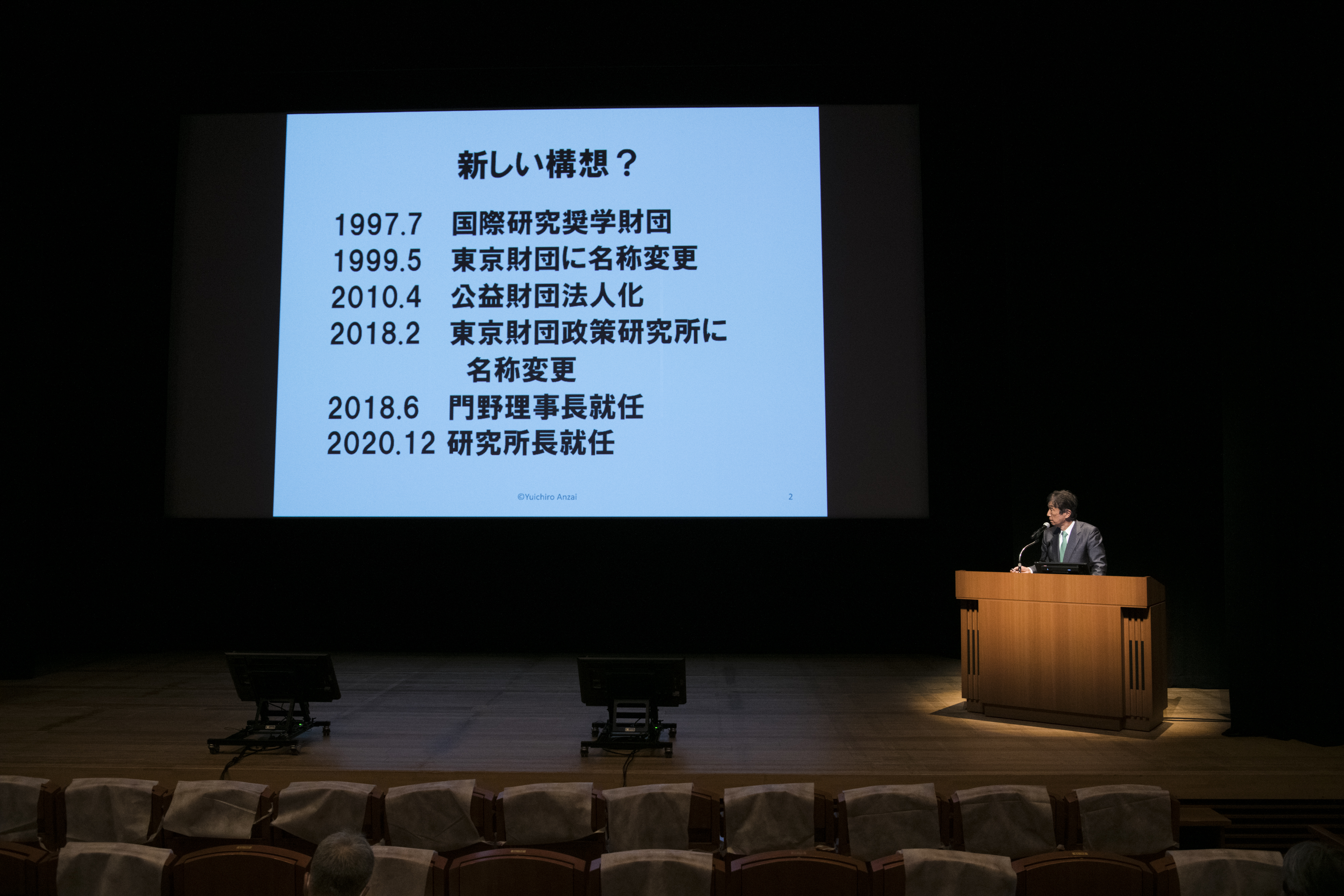
I have previously served as dean of Keio University’s Faculty of Science and Technology, president of Keio University, and president of the Japan Society for the Promotion of Science, among other posts. What did I hope to accomplish by coming to the Tokyo Foundation? To be quite honest, in the beginning I myself didn’t have a very clear idea.
I looked around at all the top political scientists, economists, and other scholars active in Japan and asked myself what I could possibly contribute. In which direction, moreover, should the Foundation be heading?
It was then that I recalled my mentor, Professor Herbert Simon, under whom I began my postdoctoral research at Carnegie Mellon University in 1976. Two years later, he won the Nobel Prize in economics “for his pioneering research into the decision-making process within economic organizations.” Dr. Simon started out as a political science major at the University of Chicago, after which he took up research positions in the field of municipal administration with a focus on the decision-making process. Building on this experience, he wrote his doctoral dissertation, which introduced the concept of “bounded rationality” in decision making.
He then placed that concept on a firm theoretical and empirical footing by launching a research project at Carnegie Mellon to create a mathematical model for the decision-making process, venturing into the field now known as artificial intelligence. Thinking back, I realized that the subject of my mentor’s work was precisely what we at the Tokyo Foundation for Policy Research are seeking to do through our research activities.
Dr. Simon’s work may not be well known here in Japan, as it diverges from the mainstream of Japanese research in economics and political science. To anyone interested, I would recommend his autobiography, Models of My Life.
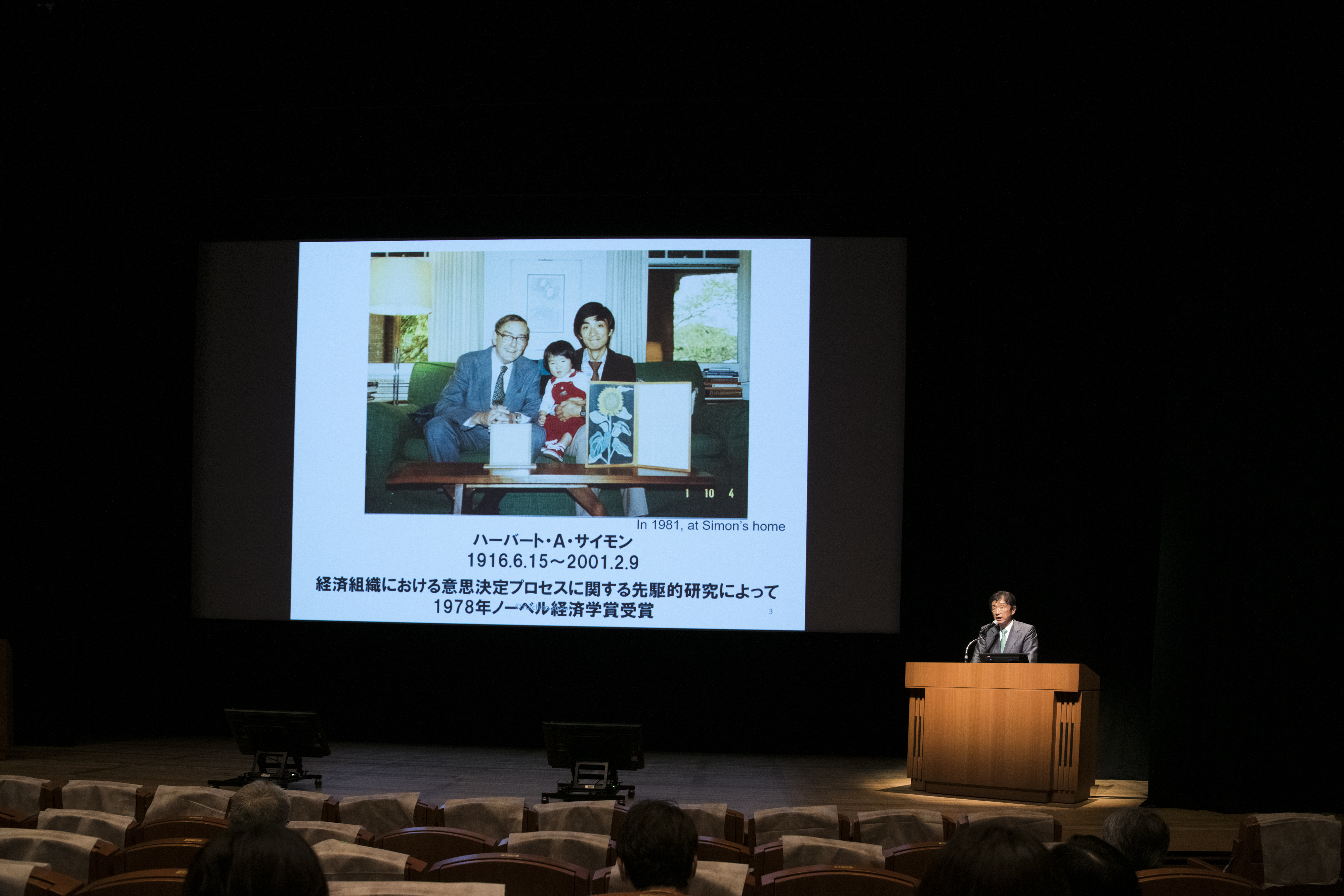
A Brief History of Think Tanks
Think tanks in Japan are many and varied. Some were government organizations that later became quasi-governmental “independent administrative institutions.” There are also think tanks that get the bulk of their funding from the government or international organizations. The 1960s saw the birth of not-for-profit think tanks, along with commercial research and consulting firms. In the 1980s, the financial industry funded a number of research institutes, and many universities followed suit in the 1990s. The past decade or so has seen the emergence of alternative avenues for influencing policy: Policy recommendations today also come from the nonprofit and nongovernmental sector, the media, and even YouTube. In our rapidly changing world, people have begun questioning the mission and methods of the traditional think tank.
Change is also buffeting Japan from all sides. There are the demographic pressures of our declining birth rate and aging population; the political and economic pressures of an international order in flux, as typified by the war in Ukraine and China’s rise; the impact of the global digital revolution; and such global environmental problems as climate change.
Many of these changes can be traced to the mid-1990s. This is when Japan witnessed a sharp drop in the 18-and-younger population; when China plowed ahead with its reform and opening policy; when domestic productivity began to stagnate; and when the spread of the Internet ushered in the digital revolution. Beginning around 1995, when the Hanshin-Awaji earthquake hit the Kobe region, we began to see major shifts in the lifestyles of the younger generation. More than two decades have passed since these changes began to unfold. How have think tanks helped Japan navigate them?
Major structural shifts are still ongoing in Japan. We are living in an era that demands the synchronized restructuring of all our systems—our national security apparatus, our economic and fiscal systems, the social structures near and dear to us, our industrial structure, our employment systems, and our education system, which is the backbone of Japanese society.
In the following, I would like to highlight some specific policy areas with which I have personal experience and use them as a springboard for a discussion on future directions for public policy research in Japan.
Pandemic Response, Security, and Technology
The first area pertains to Japan’s response to the COVID-19 pandemic. I myself served as an expert advisor in the fields of AI and data science under the Cabinet Office’s advisory board for COVID-19 and other emerging infectious diseases.
This unit within the Cabinet Office was just one of myriad administrative bodies grappling with the pandemic in parallel fashion. The unit was led by the state minister responsible for economic policy. There also was a state minister in charge of vaccination, further along with the Ministry of Health, Labor, and Welfare, plus the governments of the forty-seven prefectures and hundreds of local public health centers. The COVID-19 pandemic threw into high relief the problems Japanese policymakers face when confronted with an unanticipated crisis.
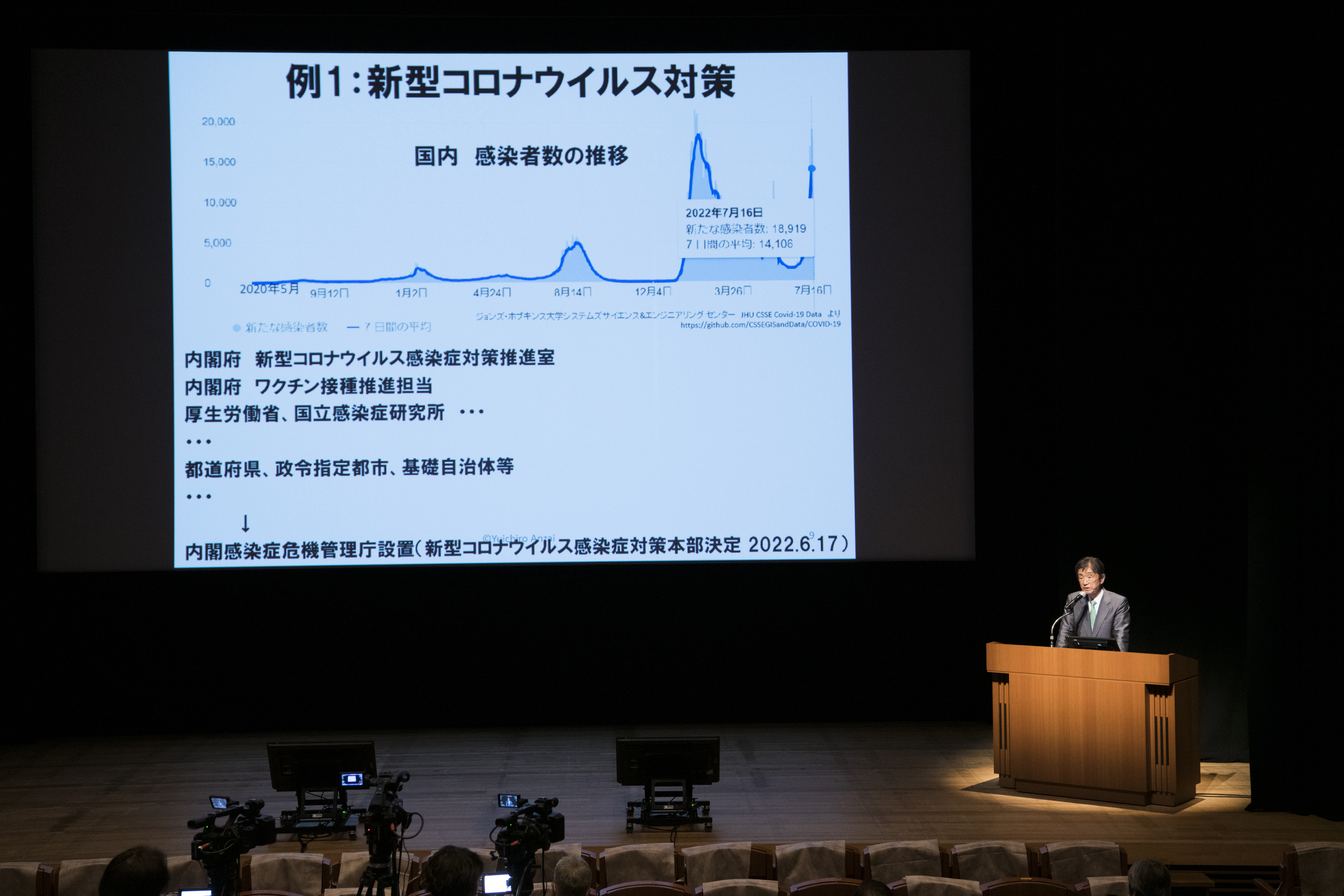
I have nothing but admiration for the hard work of the officials and responders in charge and the cooperative attitude of our citizens. But there is no denying that our response was hampered by information silos and the challenge of responding scientifically to an unforeseen situation. Most of the individual units involved were doing their utmost, but they were not working as parts of an integrated system. This is hardly surprising, since such a system did not exist. The pandemic has taught us an important lesson about preparing for crises before they occur.
Next, we come to the issue of national security and sci-tech policy. I have been involved in sci-tech policy in various capacities, so here again I speak from a certain amount of experience.
Security policy has been much in the news of late, and one major focus has been the proposal for doubling Japan’s defense spending. Japan’s current defense budget is about ¥5 trillion, or approximately 1% of gross domestic product, so the question is whether to raise that to ¥10 trillion. Given the challenge of funding such an increase within the confines of the cabinet’s Basic Policy on Economic and Fiscal Management and Reform, the government could be hesitant to commit to doubling the defense budget. At the same time, we clearly need to strengthen our defense. How to balance the demands for a stronger defense against our fiscal constraints is an important and complex question, and time is short: The government has promised to draw up a new National Security Strategy, National Defense Program Guidelines, and Medium-Term Defense Program before the end of 2022.
What, then, are some of the relevant issues to be considered when drawing up the next National Security Strategy, which lays the basis for our security policy? One very pertinent area is economic security. Economic security in turn hinges on a wide range of critical technologies in such fields as AI and quantum computers, semiconductors, healthcare and public health, aerospace, marine technology, biotech, manufacturing, robotics, information networks, energy, and cybersecurity.
About half of the government’s science and technology budget goes to the Ministry of Education, Culture, Sports, Science, and Technology. MEXT uses this budget mostly to support research at public and private universities and research institutes, and it provides the bulk of the nation’s funding for basic research. Until now, MEXT’s sci-tech policy has avoided any direct involvement with defense or the military.
However, as I’ve noted, national and economic security cannot be divorced from sci-tech policy. That raises questions as to the place national security should occupy in the basic research carried out at our universities.
Given the deep-rooted academic reluctance to engage in military research, especially at our national universities, it is unclear how many schools will agree to take part in new research programs geared to national security. But I would guess that few members of the public are even aware of this issue. I think that one role think tanks should play going forward is to provide unbiased information on topics of national and local importance on which the public is poorly informed, in order to supply our citizens with the facts they need to form their own opinions, while also offering our own policy recommendations. It seems to me that the problem of security, technology, and academia is an important example of such a topic.
Japan’s AI Strategy
The third example of policy areas concerns Japan’s strategy regarding AI and related technologies. In April 2016, under the administration of Prime Minister Shinzo Abe, the government established the Artificial Intelligence Technology Strategy Council, which was later renamed the AI Strategy Implementation Council. As the council’s chairperson, I have been deeply involved in AI policymaking.
When Prime Minister Abe announced his government’s intent to promote AI technology and established a government panel for that purpose, he was one of the first world leaders to make such a commitment. Thereafter, many world leaders followed with their own declarations regarding AI research and development. What motivated this series of declarations?
One factor is certainly expectations for business growth. A US market research firm estimated the size of the global AI-related market at between ¥40 trillion and ¥50 trillion. That is to say, although the market for AI services is still small compared with that for software and the like, it is expected to grow quickly.
But there is more to AI. This is the age of big data, and modern industrial capitalism is giving way to data capitalism. We are entering an age in which control of data will mean control of the economy, government, and the world.
Nor can we overlook the impact of AI on defense and national security. Today’s national and regional defense strategies feature technologies that played no role in earlier wars and conflicts, and AI is prominent among them. Drones equipped with AI , said to be Turkish-made, played a key role in the 2020 Nagorno-Karabakh War involving Azerbaijan and Armenia.
Semiconductor technology is critical to AI. In Japan, new economic security policies pertaining to semiconductors are coming into effect, but everyone knows that the Japanese semiconductor industry is a pale shadow of its former self. Domestic manufacture of logic chips is in a state of collapse. Half of all chips are made in Taiwan—a factor, it is said, in current cross-strait tensions. Meanwhile, Japanese sales of integrated circuits are rapidly falling.
The Ministry of Economy, Trade and Industry has a world-leading supercomputer dedicated to AI, and it is only by virtue of such equipment that we can keep pace with other countries in pursuit of our AI strategy. If the government wants to promote the development and application of AI as a national strategy, it needs to equip multiple facilities—not just one—with high-performance computing environments. We must seriously ask ourselves whether we can afford to be totally dependent on other countries for the semiconductors that support AI, a technology with major implications for national security.
But the biggest obstacle to faster progress in AI is inadequate human resources, not just for research or development but as users. Here in Japan, we lag far behind other major players, especially China, in terms of policies to develop AI human resources.
The problem is not limited to AI. The quality of any cybersecurity strategy is also dependent on human resources, and this is an area in which Japan suffers from a critical shortage. That shortage impacts the private and public sectors alike, not to mention academia.
In general, Japan is laboring under a shortage of computer-science and engineering personnel that affects not just the government but private industry as well. Moreover, the human resources we have are very unevenly distributed. When computer-science majors graduate from university, they generally find positions with vendors or makers. Very few end up working on the user side. To be really successful, IT projects—especially those involving AI or cybersecurity—require continual consultations between the user and the maker or vendor, but that rarely occurs. Even private companies, to say nothing of government clients, tend to leave everything in the hands of the vendor or manufacturer.
We’re currently seeing a surge of interest in AI, data science, cybersecurity, and other domains that were neglected until fairly recently. But everyone—from national and local governments to businesses and local communities—seems focused on producing short-term results so that they don’t “miss the boat.” There’s been almost no emphasis on long-term government policies to steadily build our capacity, as by developing human resources or beefing up basic research.
So far, we’ve identified three potential targets for policy research at Japanese think tanks: There is the matter of Japan’s readiness to deal with emergencies, as embodied in the COVID-19 pandemic; there are the wide-ranging but urgent issues surrounding national security, technology, and university research; and there is the medium- and long-term challenge of developing human resources and creating environments conducive to research and development in strategic technologies like AI.
Crisis in Education
The fourth area requiring policy research is that of education. I have been involved in education policy as well for many years, and I find this to be a very-long-range policy issue. The time to start thinking about education in the year 2040 is now.
It is well known that the Japanese government’s budget for children’s and higher education is very small by international standards, but that is just one of many serious problems. Another is the looming teacher recruitment crisis. The competitiveness of the teacher employment examinations is extremely low, a result of the fact that many senior-generation teachers are now retiring, on the one hand, and that very few young people are eager to enter the profession, on the other. If this situation continues, it will have a serious impact on the quality and skills of our teachers. Also, if we look at international data on middle school teachers, we see that the average number of years Japanese teachers spent engaged in other professions is quite low. In other words, in Japan the vast majority of schoolteachers have never held any other job. Our students are preparing to enter the “real world,” and yet their teachers, for the most part, have spent their entire working lives in the school environment.
These are just a few of the serious problems facing our education system. And when the quality of education declines, the underpinnings of society weaken.
Education is a highly complex realm, and there are relatively few private think tanks with expertise in education policy. As a matter of national and local policy, and an issue with which our citizens are directly concerned, education is an extremely important field, but it is also a long-term issue that is difficult for the government to address in a sustained manner. For think tanks, I think this is a meaningful focus for patient, sustained research, analysis, and formulation of policy proposals.
Education and education policy encompass a wide range of topics. For your reference, I have recently published a book on this issue entitled Kyoiku no mirai: Henkaku no seiki o ikinuku tame ni [The Future of Education: Surviving the Century of Change].
Tailoring Proposals to the Policy Process
If we look at the issues I’ve cited thus far in terms of the policymaking and implementation process, we can identify some important distinctions.
One concerns the time frame and how that affects the process. In an emergency situation, it’s necessary to formulate and implement appropriate policies in a very short span of time. By contrast, education policy requires a long-term effort, in some cases extending over two decades.
Generally speaking—although there are exceptions—think tanks have tended to use the same vehicles for their policy proposals regardless of the policymaking time frame. But the approach that we have used until now may not serve us in the future.
Policy-related information and ideas now reach the public from a wide array of sources. There are information programs on TV, investigative reports in our dailies, a plethora of weekly news magazines, and of course, the viral diffusion of information, comments, and “likes” on social media. The most popular response, when young children are now asked what they want to be when they grow up, is “a YouTuber.” How should a think tank submit its proposals in such an age? It seems to me that we need to mobilize multiple channels of communication, often in parallel fashion, keeping in mind the time frame for formulating and implementing a given policy.
Time frame is just one of the aspects of policymaking that think tanks need to consider. The policy process will also vary significantly according to the administrative unit in charge, whether at the national or local level. Inter-agency competition is also a factor. The budgetary resources available and the complexity and timing of the budget process also play an important role, as do political factors.
Government or quasi-governmental think tanks are likely to be well informed with the policy process in their respective areas. By contrast, the more independent a think tank strives to be, the more difficult it is to stay abreast of these factors. In the end, the best way to overcome these disadvantages is to recruit independent researchers who are truly dedicated to the future of the nation or its local communities. And since such researchers are by no means plentiful in Japan, it’s important for think tanks themselves to promote the development of human resources for policy research, as by training young researchers.
Ultimately, the future of Japan will likely be decided at the local level, not in our state ministries. This is why local and regional policymaking is so important. Yet relatively few local governments can boast an adequate supply of top-caliber policymakers. My feeling is that the human resources crunch in public administration is most serious at the local level. For these reasons, one extremely important direction for Japanese think tanks henceforth will be to support municipalities in their policymaking efforts.
Ten Requisite Thinking Skills
What skills must think tankers have to meet these challenges? One could go into great depth exploring this topic, but given the time at our disposal, I will limit myself to a brief discussion of what I call “thinking skills.”
I can think of at least ten different such skills, but for brevity’s sake, I will concentrate my remarks on the first and limit myself to enumerating the other nine.
The first is the ability to grasp public policy as a dynamic system. Generally speaking, policy does not proceed step by step in a linear fashion, with one person generating the ideas, another person drafting the plan, another approving the plan, and someone else carrying it out. It is a dynamic system in which countless people take part in different capacities. Each policy is entangled with other policies and can change with the circumstances. This is why a policy formulated in response to a particular situation at a given point in time may not function as anticipated. One needs to consider a whole range of dynamic components in tandem in order to develop a viable, successful policy. Our researchers need the thinking skills and practical know-how to craft proposals grounded in a firm grasp of policy as a dynamic system.
The second skill is the ability to not just analyze but also logically forecast how things will develop in the future. Only by making responsible projections can we propose relevant and viable policies.
The third skill is to utilize data without placing our blind faith in it. Yes, we need evidence-based policies, but for that we need to gather meaningful data and use it intelligently. We must never suppose it is sufficient just to analyze the data that is readily at hand.
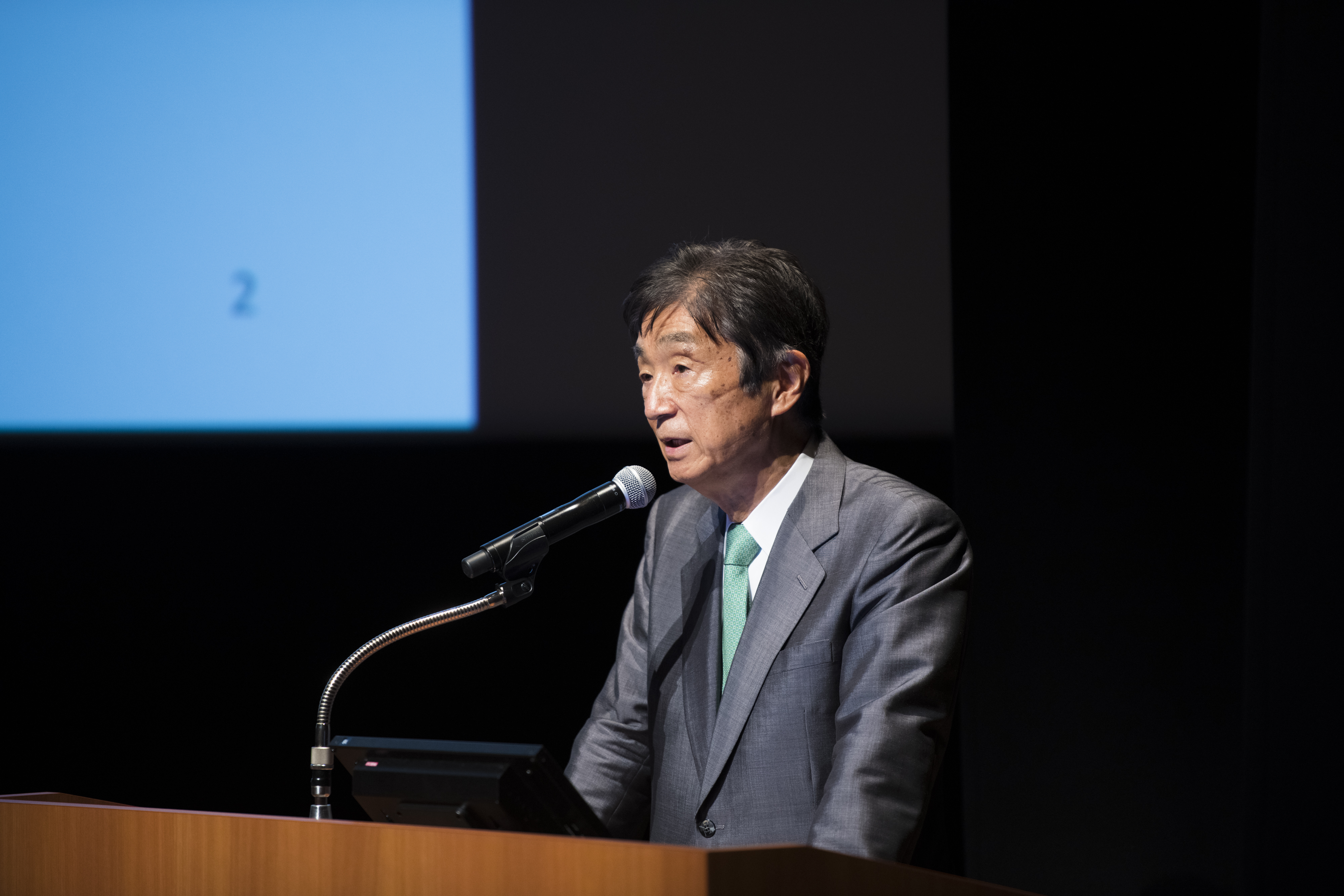
Number four is the ability to identify a problem and devise a suitable strategy for solving it. There are any number of policy issues to choose from. Researchers need to select the issues worth devoting themselves to, with the future of the country or the community in mind.
Number five, which security experts are wont to emphasize, is to “prepare for contingencies during peacetime.”
The sixth is the capacity to utilize analytical and forecasting techniques while also grasping the practical complexity of policymaking and implementation on the ground.
The seventh is a thorough knowledge and understanding of the history and present status of the policy concerned.
Number eight, which overlaps with number six, is knowledge and actual experience of the policymaking and implementation process. One might suppose that this equates to experience as a policymaker, but career-track bureaucrats are typically transferred from department to department too frequently to master a given policy area, while civil servants hired for specialist positions tend to know little beyond their narrow field of expertise. This eighth skill is highly dependent on each individual’s ability, experience, and drive.
Number nine is the leadership to build a network of stakeholders and steer that network in a specific direction.
Finally, the tenth is communication skills, specifically, the ability to empathize with and persuade people. The capacity to empathize with citizens living in the wider community is an essential aspect of a think-tanker’s skills. Our experts should neither recklessly rush to champion a cause nor lead a cloistered life buried in research. They must be willing and able to talk with people espousing a broad array of views and devote themselves to winning their understanding.
Those of you who are already familiar with think tanks or government policymaking may find some of these precepts too obvious or think it condescending of me to prescribe them in this manner. But while there has been some discussion of the role of the think-tanker, I have never seen or heard a paper that explores the thought processes of those involved in policy research.
I have been involved in formulating government policies for the promotion of policy sciences, and it seems to me that analyzing the thinking skills needed for policy research is an important step toward the development of new talent. With policy institutes facing a shortage of human resources, it is to be hoped that talented people possessing these thinking skills, or hoping to develop them, will consider a career at a think tank.
A New Vision for the Foundation
Japan has many excellent think tanks. Some of the world’s top institutes in the fields of economics, politics, and foreign affairs are found in Japan. I have had occasion to wonder if it makes sense for us to duplicate what they are doing.
With all of this in mind, I would like to propose a new vision for our research based on the following five points.
The first is that the Tokyo Foundation should specialize and develop its capacity in certain areas that depend on the dynamism of the private sector and that incorporate the perspective and address the needs of ordinary citizens and consumers. There are several such domains that have played a relatively small role until now but could prove pivotal to Japan’s development henceforth, and I believe we should spotlight these domains.
The second point concerns how we go about doing this. The old “convoy system,” encompassing the central bureaucracy, big business, and academia that helped guide Japan’s postwar growth, has become too rigid and is out of touch with the times. We need independent-minded researchers who recognize and understand this situation and possess the requisite thinking skills. To that end, the training of young researchers is another important task.
Third, we should strive for innovation in policy research and practice alike. When considering which domains to focus on and how to approach them, we should aim for innovative policy research and practice that can contribute to the future of Japan and the world. With respect to our fields of concentration, economics and public finance are our most basic concerns, and it’s important that our research be grounded in an understanding of history and international affairs. With that as a given, I expect our research activities to concentrate on five domains: (1) the environment, resources, and energy; (2) health, medical services, and nursing care; (3) education, human resource development, employment, and social security; (4) science, technology, and innovation; and (5) the digital revolution and social transformation through digitalization. I would also like us to pursue “people-centered” policy research that incorporates the citizen’s point of view.
The fourth point, which should go without saying, is the need to conduct high-caliber research. That means not only using sound logic and reliable data but also maintaining our dignity and probing deeper than the mass or social media can. At the same time, it’s important that our research lead to policy proposals that the public can understand and accept.
The fifth and final point is that we should support policymaking not only within the central government but at the local level as well. Our nation’s future depends on our ability to activate the resources of all regions, not on further concentration of power and resources in the Tokyo area. This point overlaps with the idea of the Tokyo Foundation as a “people-centered” think tank that approaches policy research from the citizen’s point of view.
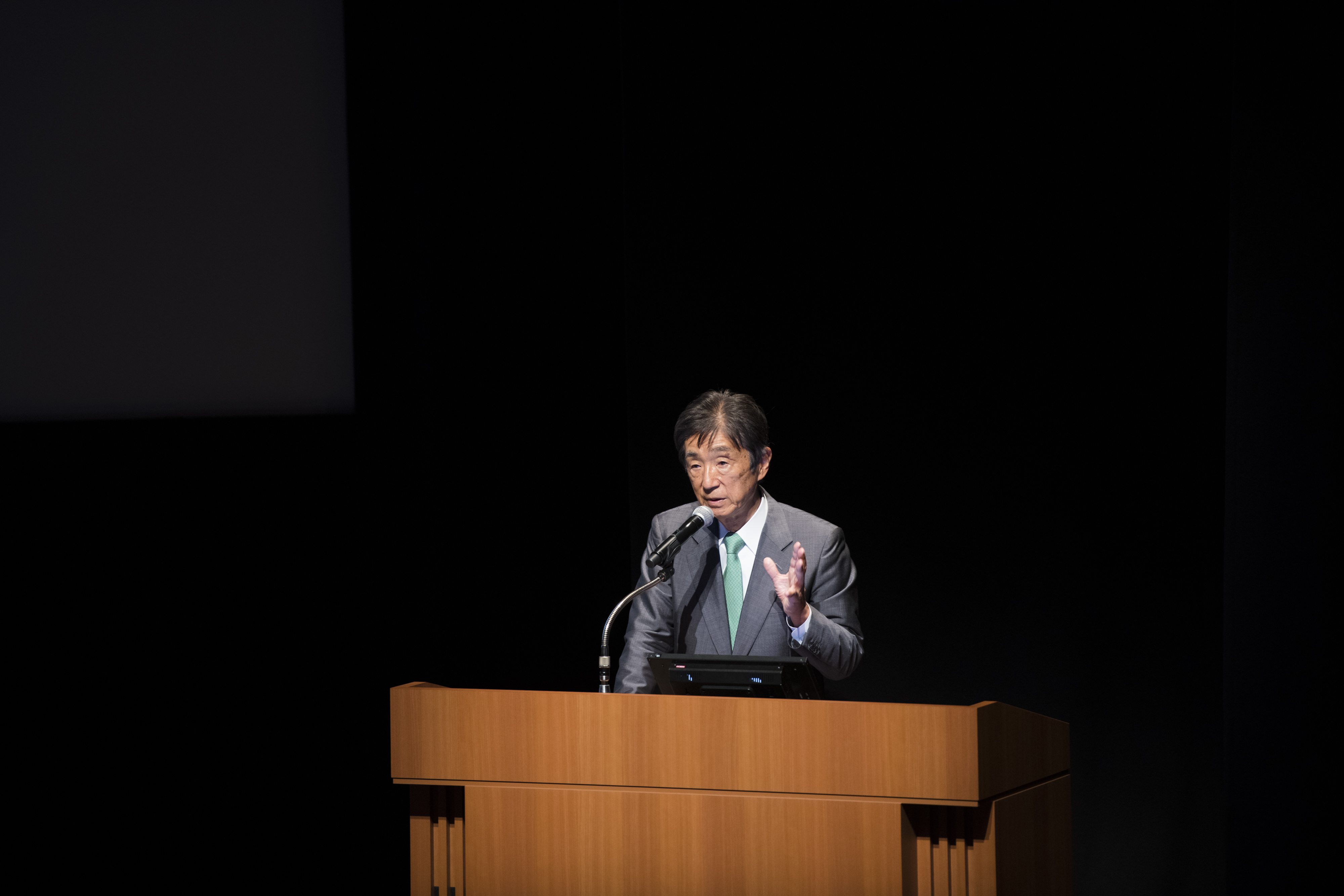
At present, the Tokyo Foundation for Policy Research has 28 research programs plus the CSR research project, all continuing in parallel fashion. Each of the speakers at today’s symposium is the research director of one of these programs. These 28 programs were launched in October 2021, so they are still in their formative stages, but I have high hopes that each will attain a high level of research and help make our new vision a reality.
This concludes my introduction to the Foundation’s new vision. As we mark the twenty-fifth anniversary of our founding, I want to express my gratitude to all the symposium participants and to everyone else whose efforts have made today’s event possible. We look forward to your continued support and guidance.
